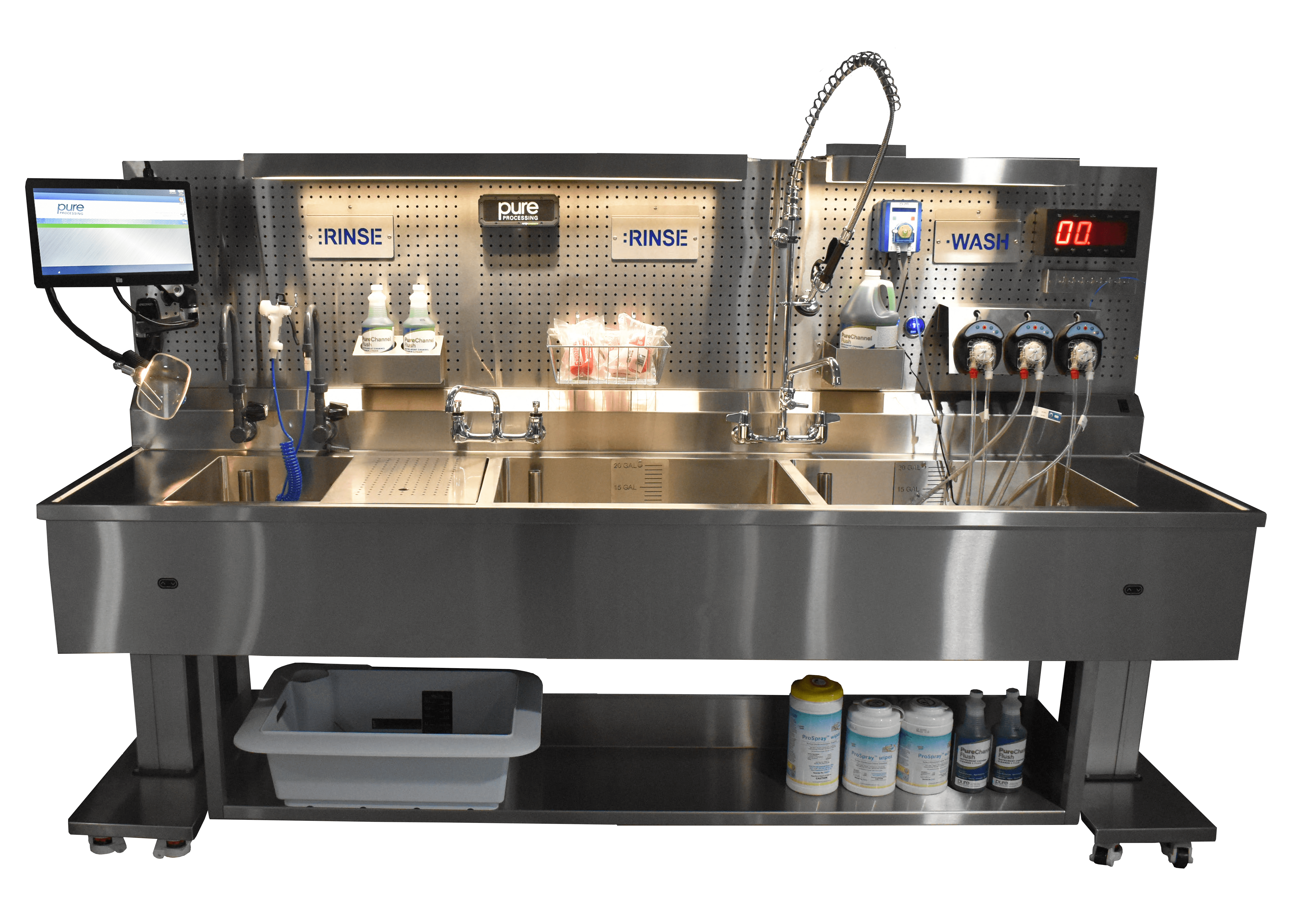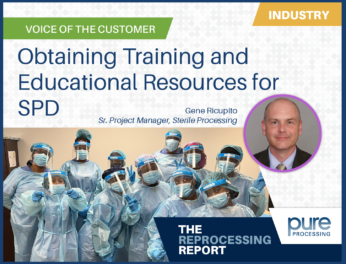
CATEGORY: Voice of the Customer

Apr 30, 2024
Justifying an Educator Role in Your Department
In March 2024, Pure Processing’s Voice of the Customer (VOC) Committee met to discuss a topic on the minds of many in reprocessing departments: educators. Educators play a pivotal role in reprocessing departments, but not all departments have, or are able to have, a dedicated educator role. Bill Filipponi, Director of Sterile Processing at North Kansas City Hospital, and longtime member of the VOC Committee, dove in deeper with Pure Processing into how departments can make the case internally to justify a permanent educator position. Error Rates Error rates are an effective indicator when gauging whether a team possesses the knowledge necessary to properly reprocess instrumentation. Filipponi explained that an upward trend associated with error rates should be a clear signal to managers that their team likely requires additional training & education centered on the source of the errors. This isn’t always cut and dry, however. Managers may be able to identify that additional training is needed, but they aren’t always able to diagnosis exactly which training is necessary or how to effectively deliver it to those that need it. Educators bring a background that enables them to more efficiently diagnose and address training gaps, as well as tailor training styles to deliver what each technician needs. This ensures appropriate amounts of time are being spent with team members and reduces error rates. Complexity of instrumentation It’s no secret that instrument complexity continues to grow, requiring departments to obtain and retain important information associated with reprocessing them. Managers and supervisors often fall into this role in lieu of an on-staff educator but aren’t always the best equipped to serve in that capacity. As Filipponi pointed out, some scope IFUs require 80-90 steps to achieve compliance, and errors mean reprocessing a second time, effectively doubling the time spent reprocessing that scope. Dedicated educators can not only stay on top of these complex IFUs but keep teams up to speed and leverage their educational background to convey the why behind critical steps contained in IFUs. “A ten-minute shortcut could lead to a week-long stay for a patient”, Filipponi explained. An educators’ ability to explain the importance behind certain steps helps teams to understand the impact of taking shortcuts or cutting corners, ultimately helping them do what’s right in the interest of patient safety. Turnover rates Turnover and staffing problems have plagued reprocessing departments for years. A notable contributing factor to these high turnover rates is the difficulty of the work in departments and a steep learning curve. It might be easier for frustrated staff members to leave the industry in favor of one that’s less demanding, physically, and mentally. As Filipponi elaborated, “It’s really money or time. You can perpetually hire, but that’s expensive and inefficient. You can offer overtime to cover the technicians you’re missing, but that’s also expensive. When you’ve got a smaller team than you need, it’s money or time that can make up the work, and it’s tough to get more time.” Educators enhance the onboarding experience, helping to assess new hires’ current competencies and providing the education and training needed to bridge competency gaps. These first weeks can be critical for a new technician. The training provided can be the difference between them burning out in the first six months or climbing the ladder and leading a department in the future. The bottom line: educators can contribute to lower turnover rates and more effective teammates. Managers’ Time Most probably agree: it’s difficult to find a department that functions perfectly or rarely needs additional training or education. When, inevitably, a department without an educator needs to obtain additional training and educational resources, it will likely fall on the department’s manager to source and deliver. Some view this as a necessary part of a manager’s role; work that they should be doing. Filipponi, however, explained that while managers can fill in in an educator capacity, it’s what they’re not doing during that time that has a bigger impact on the department. “When managers are acting as educators, there are a lot of other things they aren’t doing. One-on-one meetings are the first thing to take a hit. They’re communicating with their team less; less able to implement leadership strategies. Overtime, they become less of a leader.” When managers are unable to spend time developing their team, they begin to lose sight of team dynamics. The person that might have made a great supervisor doesn’t get the opportunity to grow because the manager can’t focus on evolving the team. Furthermore, they can’t focus on becoming a better, more effective for their leader. Filipponi adds: “They can’t focus on culture, and retention is typically where you take the hit. People start leaving.” Dedicated educators allow managers to continue serving in their capacity as a leader and improving their skills in that role. This allows teams to continue to evolve and grow, offering career ladders for those looking for one, and helping managers serve their team better. Conclusion Educators may be viewed as a ‘nicety’ as opposed to a necessity. Sure, in some small departments it may be difficult to justify another headcount. This justification is more within reach than you may realize. Filipponi explained that justification for anything comes down to dollars and cents. The benefits that educators offer departments translate easily into that language: Reduced error rates mean less time doing double work. Consider the average hourly wage of a team member and what higher accuracy would mean for the bottom line. Reduced turnover rates and staffing concerns mean less time spent conducting interviews, onboarding, and training new hires. How much time and money are being spent on these activities? More effective leadership by managers means a more effective team overall. As the needs of your facility evolve, a dedicated team led by a manager that understands their team and how to help them achieve success means the department runs like a well-oiled machine, helping the facility achieve its’ long-term goals. Interested in exploring…
Read More











